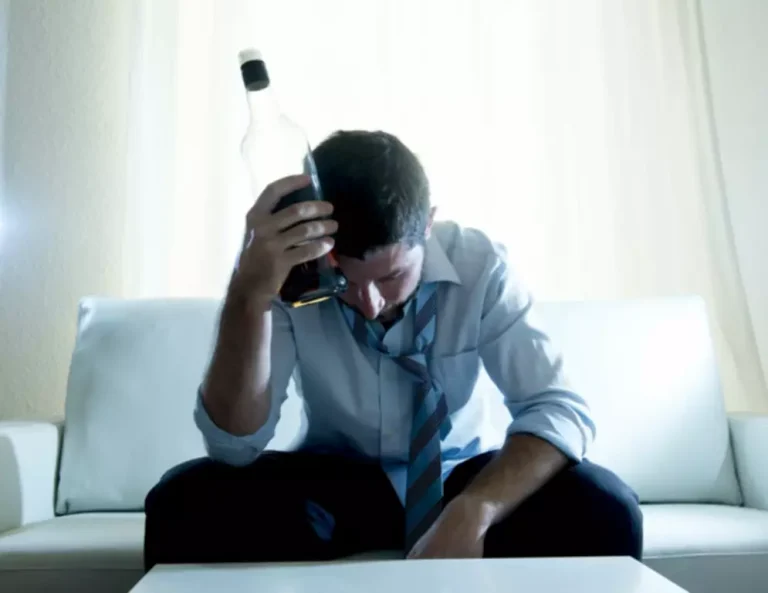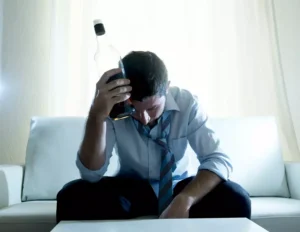
Delirium tremens is estimated to come with a 35% risk of death if you go through it without treatment. While other types of alcohol are poisonous to humans, it’s thought that we developed the ability to drink ethanol because it’s naturally produced in fallen fruit. The production and consumption of alcohol have also been practiced for thousands of years.
- Dependence is a chemical response to the consistent presence of alcohol in your brain and body.
- In rare situations, people with very high CNS activity may need general anesthesia to fully sedate them and avoid the most dangerous symptoms of DTs.
- Yet the value of EEG in the setting of alcohol withdrawal seizures is limited and findings such as epileptiform activity should prompt the evaluation of an underlying epilepsy (23).
- During the 12- to 24-hour time frame after the last drink, most people will begin to have noticeable symptoms.
- The wife clarified that that he was a heavy drinker and that during the weekend the patient had been drinking continuously for 3 days.
Medications to Ease Withdrawal Symptoms

Some people describe a general “funny feeling” that happens in this phase. Medical detoxification or detox for alcohol is a process designed to help individuals safely withdraw from alcohol under medical supervision. It can be done either inpatient or outpatient, depending on your health, needs, and personal preferences. DTs can be life-threatening if left untreated and require immediate medical intervention. Only a small percentage (approximately 5%) of individuals undergoing alcohol withdrawal will experience DTs.

Suicide prevention
An observational cohort study compared a fixed-dose phenobarbital protocol versus as-needed benzodiazepine regimen in subjects with high-risk alcohol withdrawal in one institution (24). The protocol of phenobarbital was composed of a load tailored according to the patient’s risk of sedation followed by down-titration of PO doses. The combination of benzodiazepines with phenobarbital (single intravenous dose of 10 mg/kg) may also prevent ICU admission and ventilation, with a similar safety profile in comparison to benzodiazepines alone (56). Similar to benzodiazepines, dose regimens vary from study to study with phenobarbital (44). A retrospective cohort study comparing use of CIWA-Ar-guided benzodiazepine protocol versus scheduled intramuscular phenobarbital in patients with severe alcohol withdrawal reported significant decrease in length of stay (30).

General Health
Your healthcare provider will recommend and encourage treatment for alcohol use disorder. It affects about 50% of people with alcohol use disorder who stop or significantly decrease their alcohol intake. AUD is the most common substance use disorder in the U.S., affecting 28.8 million adults.

How is delirium tremens diagnosed?
- If you have delirium tremens, confusion is one of the key symptoms you’ll experience.
- If you suddenly stop drinking or significantly reduce the amount of alcohol you drink, it can cause alcohol withdrawal.
- Generally, you may need treatment for alcohol misuse when you can no longer control the amount you drink or how long you drink.
- They can help you quit drinking in a safe environment and prevent serious symptoms of alcohol withdrawal.
- As mentioned above, the revised CIWA-Ar scale can be applied to grade the severity of alcohol withdrawal (71).
- Most people with mild to moderate alcohol withdrawal don’t need treatment in a hospital.
It’s hard to pinpoint an exact number for each person because everyone’s different. Some have genetic conditions that mean it’s very easy for them to experience intoxication from alcohol. Others may be more susceptible to intoxication and DTs because of medications they take, health conditions and other factors. They can also help you manage any symptoms of alcohol withdrawal you experience when you stop drinking. Below, the three stages are broken down into an alcohol withdrawal timeline.
What is Alcohol Withdrawal Syndrome?
Alcohol is one of the most common recreational substances in the world. Despite its legal status and cultural acceptance, it is a serious psychoactive alcohol withdrawal seizure substance that can profoundly affect your health. Alcohol can be dangerous to abuse, but it can also be dangerous to quit too quickly.
Internet Book of Critical Care (IBCC)
These have remained landmark articles, forming a basis for our current knowledge. The alcohol withdrawal timeline varies, but the worst of the symptoms typically wear off after 72 hours. People who are daily or heavy drinkers may need medical support to quit. Stopping drinking abruptly can lead to seizures and can even be fatal. Unstable vital signs increase the risk of complications and can be managed with medications. People who experience severe withdrawal symptoms or DTs may require hospitalization or intensive care unit (ICU) treatment during alcohol.
- Although seizures occur in the context of alcohol withdrawal, frequently other signs of alcohol withdrawal syndrome are not present because they develop gradually (27).
- More studies are necessary to better understand this condition and how certain factors may affect the timeline and severity of symptoms.
- There is a large degree of variability in alcohol metabolism as a result of both genetic and environmental factors.
- Treatment significantly lowers the likelihood that symptoms will become deadly.
- This system encourages you to repeat important activities, such as eating.
Ethanol is the key ingredient in many alcoholic beverages, such as beer, wine, and spirits. As a depressant, alcohol can suppress the central nervous system (CNS), making the body reliant on it with prolonged exposure. It does this by reducing the excitatory portion of the CNS called the glutamate receptors while increasing the inhibitory portion called the gamma-aminobutyric acid receptors. Seeking help for addiction may seem daunting and possibly even scary, but there are several organizations that can provide support.
Your healthcare provider is the best person to tell you more about the possible complications you might experience after your symptoms improve and confusion resolves. Your provider may also tell loved ones authorized to know and make choices about your care. Delirium tremens (DTs) is the most severe form of alcohol withdrawal.
